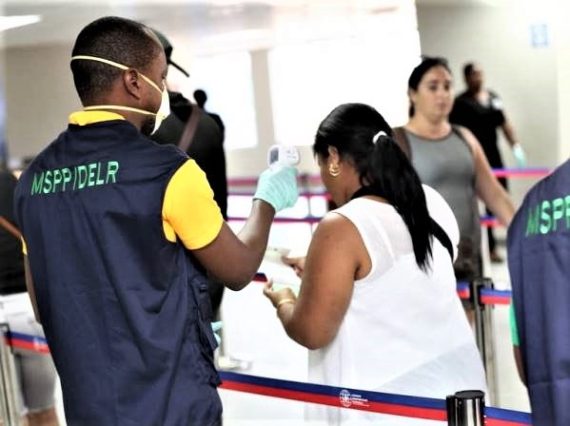
Picture the typical crowded streets in Port-au-Prince – current reports indicate that nothing much has changed with that, in spite of the government’s encouragement of “social distancing” (a bit of a joke in Haiti anyway).
Picture the typical crowded tap-tap – drivers have been asked to voluntarily limit the number of passengers they’re allowing on – you can imagine how well that’s going.
From Jacqueline Charles of the Miami Herald (Jacqueline is the one reporter I follow daily – she’s the best source I’ve found for consistently thorough and unbiased reporting on Haiti):
Covid-19 Risks Collapsing Haiti’s Fragile Health System: As coronavirus cases grow, calls for rapid testing and medical gear in Haiti go unanswered
The fragility of Haiti’s healthcare system in the face of the coronavirus came into focus this week when the French Hospital of Haiti announced that, after more than 100 years of providing medical care in the capital, it will shut down its emergency room and quit admitting patients as of May 1.
The hospital’s medical director, Dr. Jean Venèse Joseph, said the final straw was when it took government officials 48 hours to test a 70-year-old patient with pneumonia for COVID-19, and staff realized they had neither the equipment nor medical gear to confront the highly contagious respiratory disease.
“You can imagine the panic that took place inside the hospital,” he said in a telephone interview from Port-au-Prince. “We realized that we are not prepared to confront the reality that exists.”
Private hospitals and nonprofit healthcare providers like the 60-bed French Hospital are the backbone of Haiti’s healthcare system. But those key players say they’re being undermined by the Ministry of Public Health and Population, which is leading the national response to the pandemic.
According to some healthcare providers in Haiti, the government is dragging its feet on everything from allowing rapid testing to contact tracing to involving non-government healthcare facilities in its response.
Haiti’s official statistics tell a troubling story. The nation of 11 million has so far only tested 218 people for the deadly coronavirus and has 20 confirmed positive cases. By comparison, the Dominican Republic, which has roughly the same population as Haiti, has run more than 4,000 tests, and reported 1,488 positive cases and 68 deaths. It has also said it’s seeing community transmission.
Dr. Franck Généus, the head of the country’s association of private hospitals, said the decision by the French Hospital is a sign of things to come if the government doesn’t get its act together. He has publicly accused the ministry of not doing enough to involve private hospitals in its COVID-19 response plan.
“In two, three weeks, the health care system in Haiti will be brought to its knees,” Généus said.
For weeks, nonprofits like Zanmi Lasante, which runs the country’s largest functioning hospital, the 320-bed University Hospital of Mirebalais, and Innovating Health International, have been asking the ministry whether they can use 15-minute rapid tests to help detect COVID-19, the respiratory disease caused by the flu-like virus. So far they have received no response even though both have access to testing kits.
Dr. Lauré Adrien, the director general of Haiti’s Ministry of Public Health and Population, said some private hospitals in Haiti have an expectation that the health ministry will be giving personal protective equipment to everyone. But this will not be the case. The government first needs to know which hospitals are in position to receive and care for COVID-19 patients, and then the institutions need to provide an inventory of their needs.
“The country does not have a huge amount of PPE; our orders are not yet fully met,” he said.
Haiti, which recently ordered $18 million in medical equipment and gear from China, according to its prime minister, will distribute the equipment as soon as it is available, Adrien said.
He said another problem with the private hospitals in the country is that while they have nurses and administrative staff, they rarely have doctors assigned to them, further complicating care and the ability to respond to the pandemic.